The primary way to friendship with fish is by feeding. Feeding fish looks like the fun part while caring, but we don’t know about,” The Dangers of overfeeding your fish’’.
Once you love the reaction that fish give back while feeding, you cannot resist feeding once again. But it's possible to cause overfeeding, and later it turns out to be a serious disease and stress.
Overfeeding not only affects fish life but also leaves a great impact on the aquarium. It is very important to understand the dangers of overfeeding your fish and also ways to avoid it.
Stick with us till the end of the article. Through this article will love to share with you the best-researched and knowledgeable content.
What are the dangers of overfeeding your fish?
We all know aquarium fish have a small stomach but they are very greedy for food, which can be dangerous both for fish and the aquarium. The dangers of overfeeding are as follows:
1. Improper digestion
Overfeeding results in improper digestion. When we feed dry food, it slowly expands in the stomach when coming in contact with water. Most of the food from the market is dry food except for natural food.
So, if we overfeed them then these dry foods will not properly digest and cause stress to them which results in serious health problems.
2. Fatty liver
Overfeeding also affects the function of the liver, which causes Hepatic Lipidosis, also known as fatty liver in fish. Feeding a large quantity of food means intake of more nutrients in the body, which accumulate as fat in the liver. It can also cause deaths.
3. Rotting of fin
Fin rot is occurring when your fish is stressed. Overfeeding causes stress to the fish and stress is a very common reason for fin rot. It could become a major problem if it is not cured in the early stages. All the fins of the fish look dull or eaten. It might also cause the death of the fish.
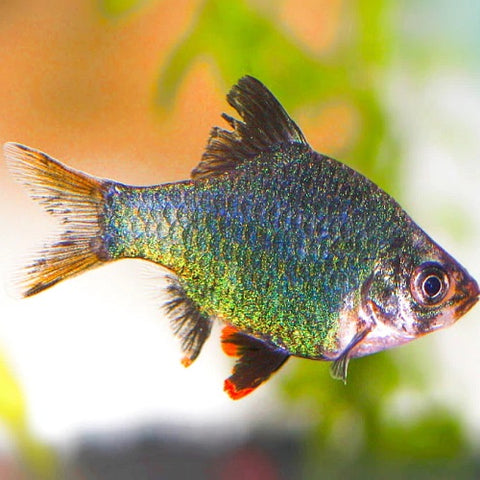
4. Pollution in water by high ammonia and nitrates
If we overfeed fish then the food residue settles down at the bottom surface of the tank, maybe on the substrates, and starts rotting. Not only the food waste but the poop of the fish also creates a high level of ammonia and nitrates after decomposing.
These chemicals are highly toxic to the fish and can cause immediate death if the tank water is not cleaned or changed immediately.
5. Blooming of algae plants
When there is much ammonia, nitrates, and other dissolved organic compounds in the tank, the algae will meet its favorable conditions and grow very well.
It increases the workload of cleaning. They intake the nutrients from water, which creates a lack of nutrients for the natural plants in the fish tank. These algae give an untidy look to the tank.
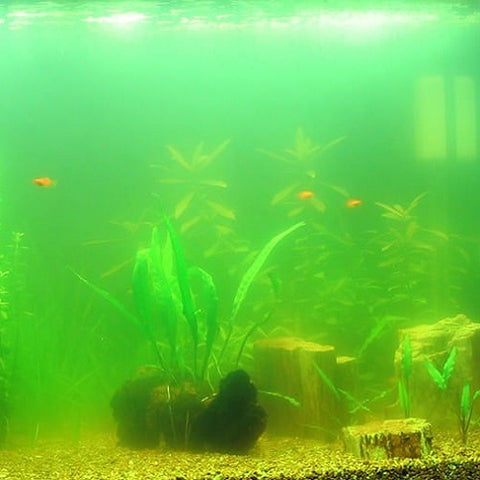
6. Lack of oxygen
When we overfeed then the uneaten food starts to decompose which results in a lack of oxygen. Don’t get confused, the process of decomposition uses a lot of oxygen from the tank water, which creates a problem for fish. Fish starts suffocating because of the high level of CO2 in water. They might die if the water is not changed over time.
7. Effect on the pH level
We all know that all the fish have their proper favorable pH range to survive. When the process of decomposition of waste begins, it slowly releases a high amount of acids, which lowers the level of pH in the water tank. These acids not only affect the fish but also makes difficulties for the aquatic plants present in the fish tank. The unbalance of the pH value in water makes it difficult for fish to survive.
8. Make it difficult for the filtration system
If we overfeed the fish, there will be huge waste accumulated in the tank, which makes it difficult for the filtration system to function. The waste gets clogged in the vacuum area and we need to change the filter media or remove the wastes from the filter.
It also stinks and creates the environment of the tank unpleasant and unhealthy. It makes water quality poor and promotes diseases that make the fish highly stressed.
9. Growing of mold or fungus
The unclean environment or dissolved organic components in the fish tanks also promote molds or fungus growth apart from the algae.
We may notice the cotton-like appearance over the substrates, toys, artificial logs, and many more is the fungus. It generally occurs after the blooming of algae. It is dangerous for the fish’s health as it also causes a lack of oxygen in the fish tank.
10. Cloudy water
Most of the fish are okay with the cloudy water. Cloudy water forms due to the numerous bacterial growth due to the presence of wastes and the decaying matter in the fish tank. This bacterial growth gives a tidy look to the fish tank and goes on increasing unless the water is cleaned.
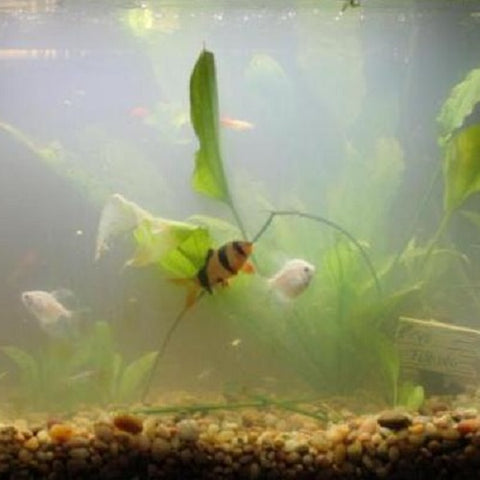
How to avoid overfeeding and manage the related issues?
Is there any natural way of cleaning uneaten food in the tank? Yes, we can add some bottom feeders like catfish, loaches, snails, or shrimp in the fish tank, which slowly finish up the uneaten food lying over the substrates.
Although there are some ways to avoid overfeeding which are discussed below.
- We should feed our fish on a proper schedule or also add an automatic feeder (available on our website). We can prefer feeding 1-3 times a day depending on the type of fish.
- We should know about the diet of our fish and only feed them the right amount of food. Uneven quantity leads to food waste. Add some nutritious food like dried or frozen foods to your diet once a week.
- Make a proper schedule for cleaning the tank including all the substrates and filter systems. A clean tank with a hygienic environment keeps fish happy and out of stress.
Conclusion
Hope you learned some from our valuable content i.e., “The Dangers of overfeeding your fish”. We have shared how overfeeding can be dangerous and how to avoid it.
As an aquarist, it feels like a reward when our fish are colorful, healthy, and respond to us and eat the food we provide. If you have any unanswered questions or want suggestions for the products for your aquarium then please leave your message in the comment section.


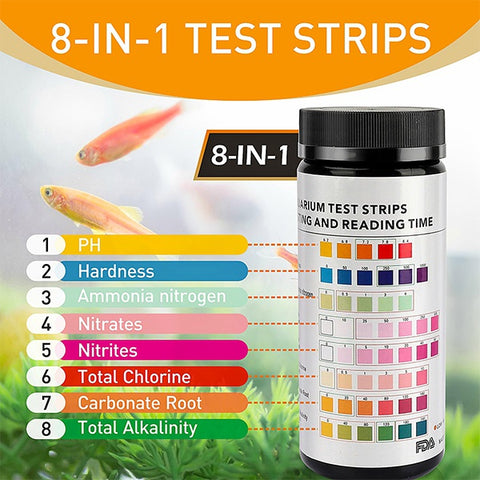
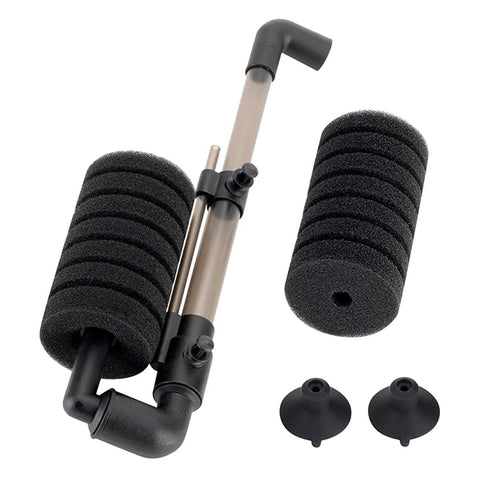
Comments (0)
Back to Fish Care